 Research Update
Research Update
23
OctoberOn October 20, 2018, the "International Forum on Urban Governance of Capital Cities" was held at the Century Hall of Renmin University of China. The forum was hosted by the Capital Academy of Development and Strategy of Renmin University of China, and co-organized by the National Academy of Development and Strategy of Renmin University of China, the Beijing Association of People's Friendship and the School of Public Administration of Renmin University of China. Nearly 30 experts and scholars from 9 countries including China, the United States, the United Kingdom, Japan, Australia, India, Indonesia, Mexico, and Pakistan gathered together to share experiences on the governance of capital cities in various countries around the theme of "excellent governance, co-governance, and the rule of law", providing suggestions for the urban governance in the capital cities.
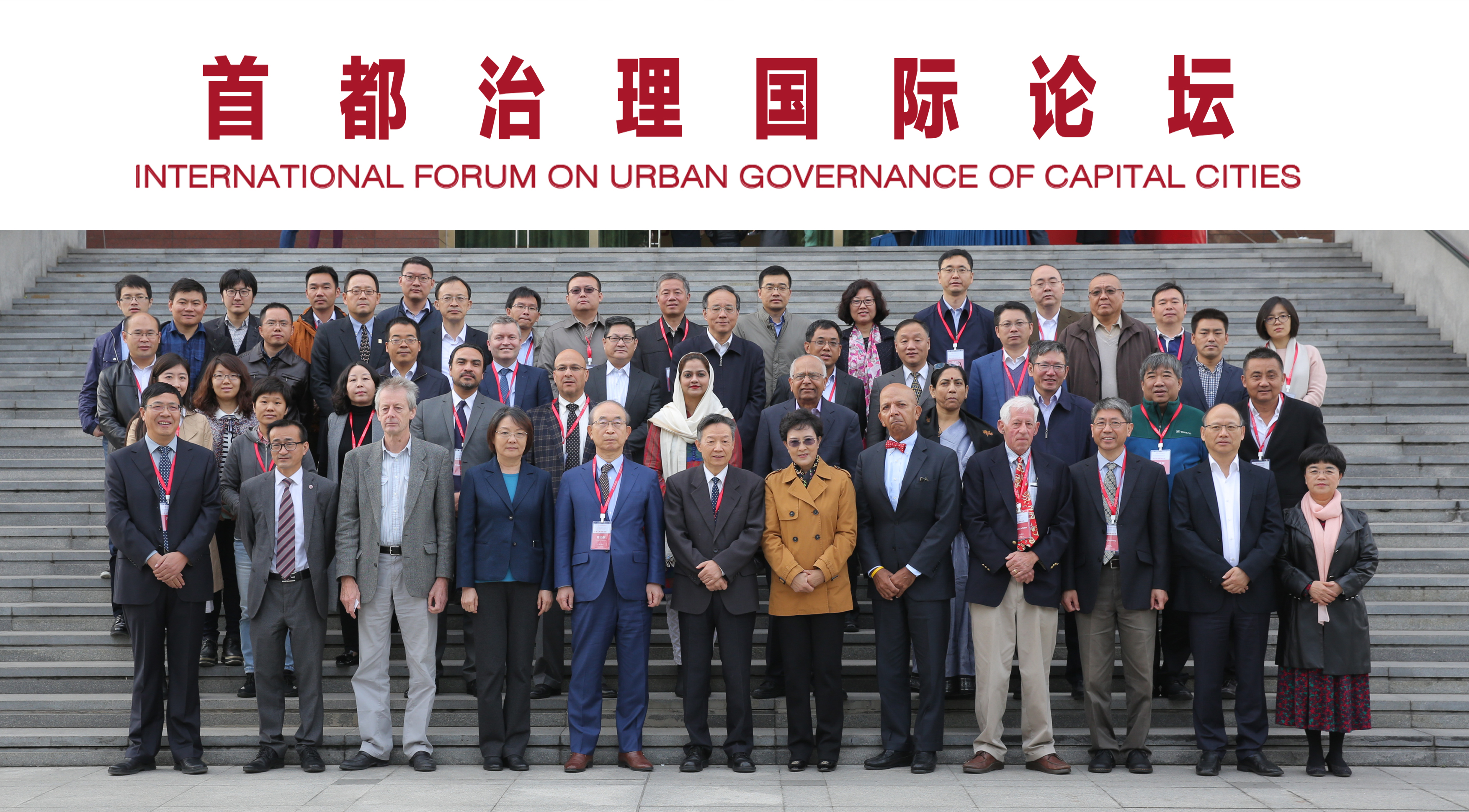
This forum is the first of a series of activities of the “Capital Development High-end Forum” of Renmin University of China. The purpose is to thoroughly study and implement the important spirit of “promoting the modernization of the national governance system and governance capacity” proposed by the 19th National Congress of the Communist Party of China, realize a series of important instructions made by General Secretary for the work of the capital to provide a high level of intellectual support for improving the governance system and governance capacity of the capital city.
The opening ceremony of the forum was presided over by Professor Liu Yuanchun, Vice President of Renmin University of China. Jin Nuo, Secretary of the Party Committee of the Renmin University of China and Professor of the Capital Academy of Development and Strategy (referred to as the CADS), and Zhang Miao, Secretary of the Beijing Social Science Association Party Committee and Vice Chairman of the Capital High-end Think Tank Council delivered a speech respectively.
Jin Nuo said that the CADS RUC specialized in moderation of capital governance and set up a very good academic exchange platform. The famous experts from all over the world discuss the development and governance of the capital city on this platform. It will produce valuable results in theory and practice and contribute the wisdom to decision-making.
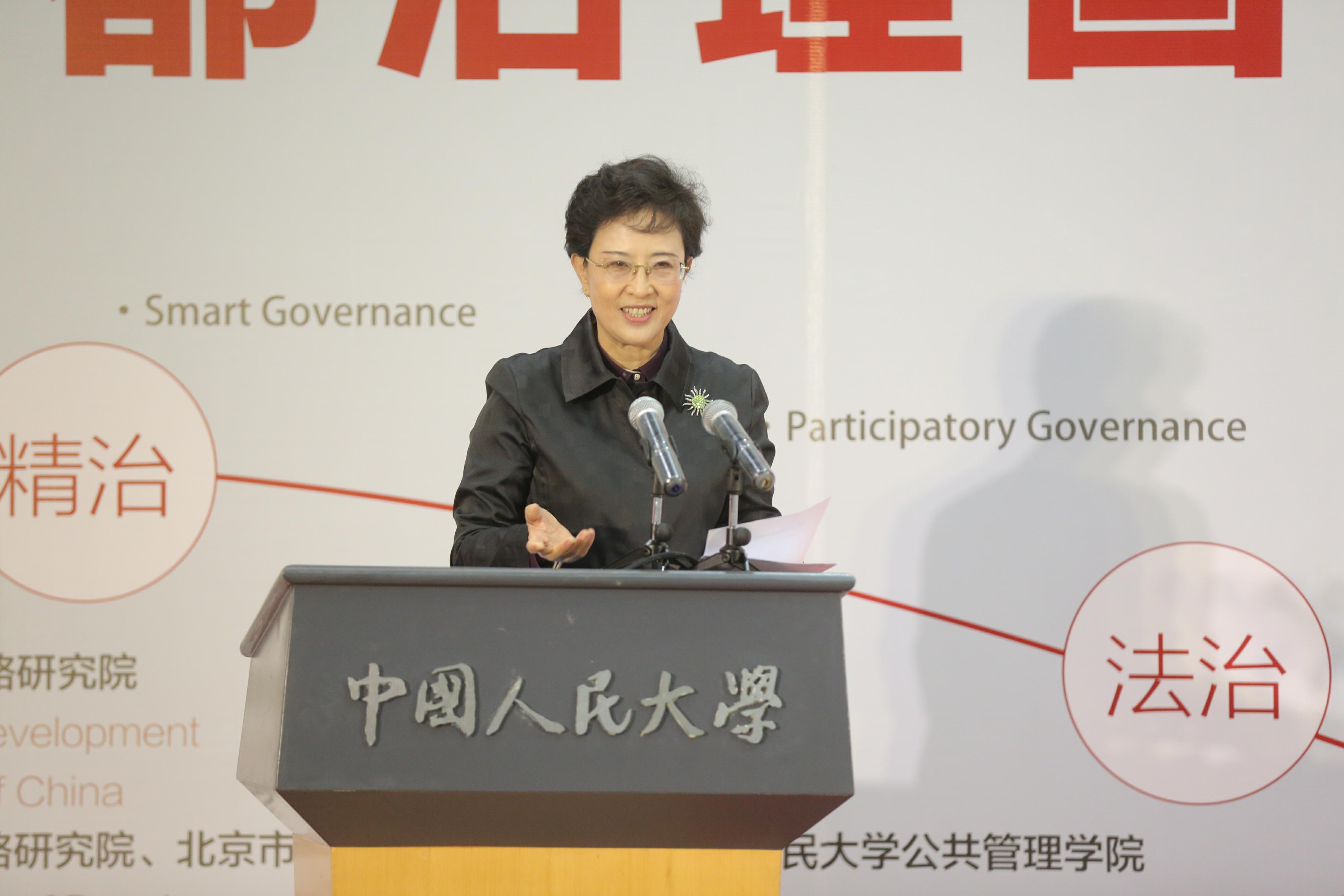
On behalf of the Capital High-end Think Tank Council and the Beijing Social Science Association, Zhang Miao expressed his congratulations on the convening of the forum and affirmed the results of the research on the achievements of the CADS. He hoped that the CADS will further develop the brand and create features and play a leading role in building high-end think tank pilot units.
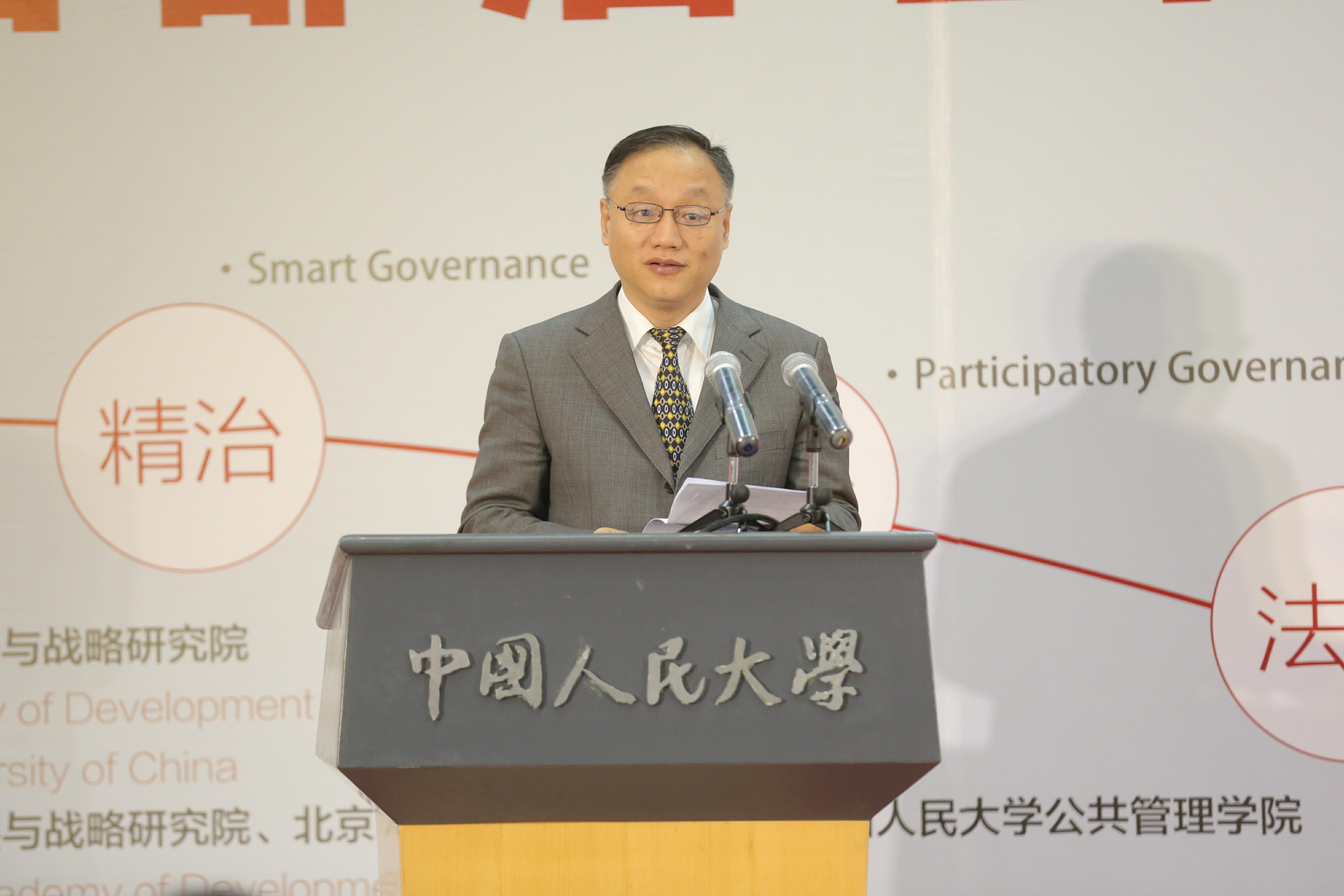
Liu Yuanchun extended his welcome to the guests present. He hoped that domestic and foreign experts would exchange and learn from each other and jointly explore the ways of developing and governing the capital city, so as to achieve "excellent governance, co-governance and rule of law."

The first module of the forum was co-chaired by Professor Yan Jinming, Executive Dean of the NADS RUC, and Professor Han Sunsheng, Associate Dean of the School of Architecture, Construction and Planning of the University of Melbourne.
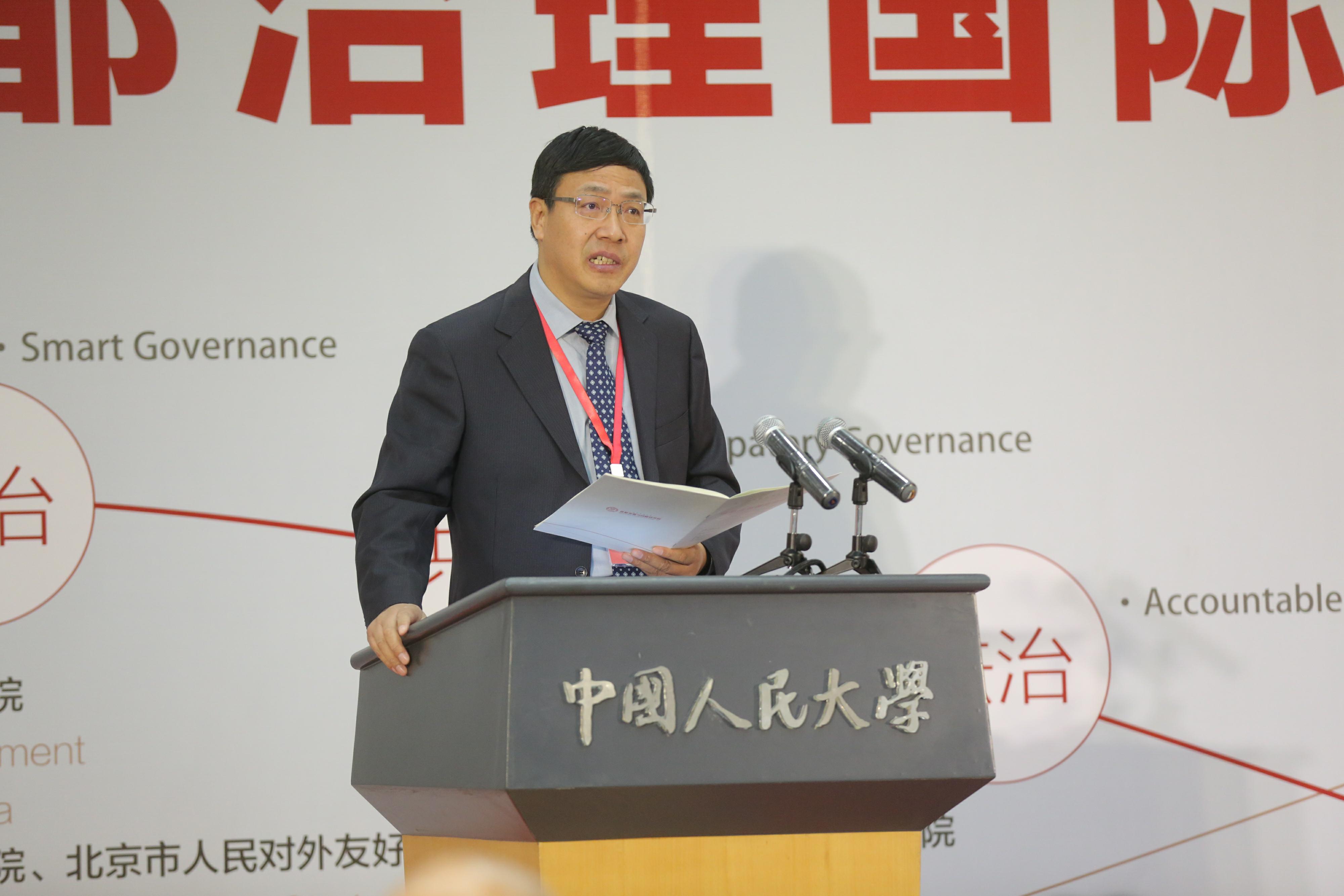
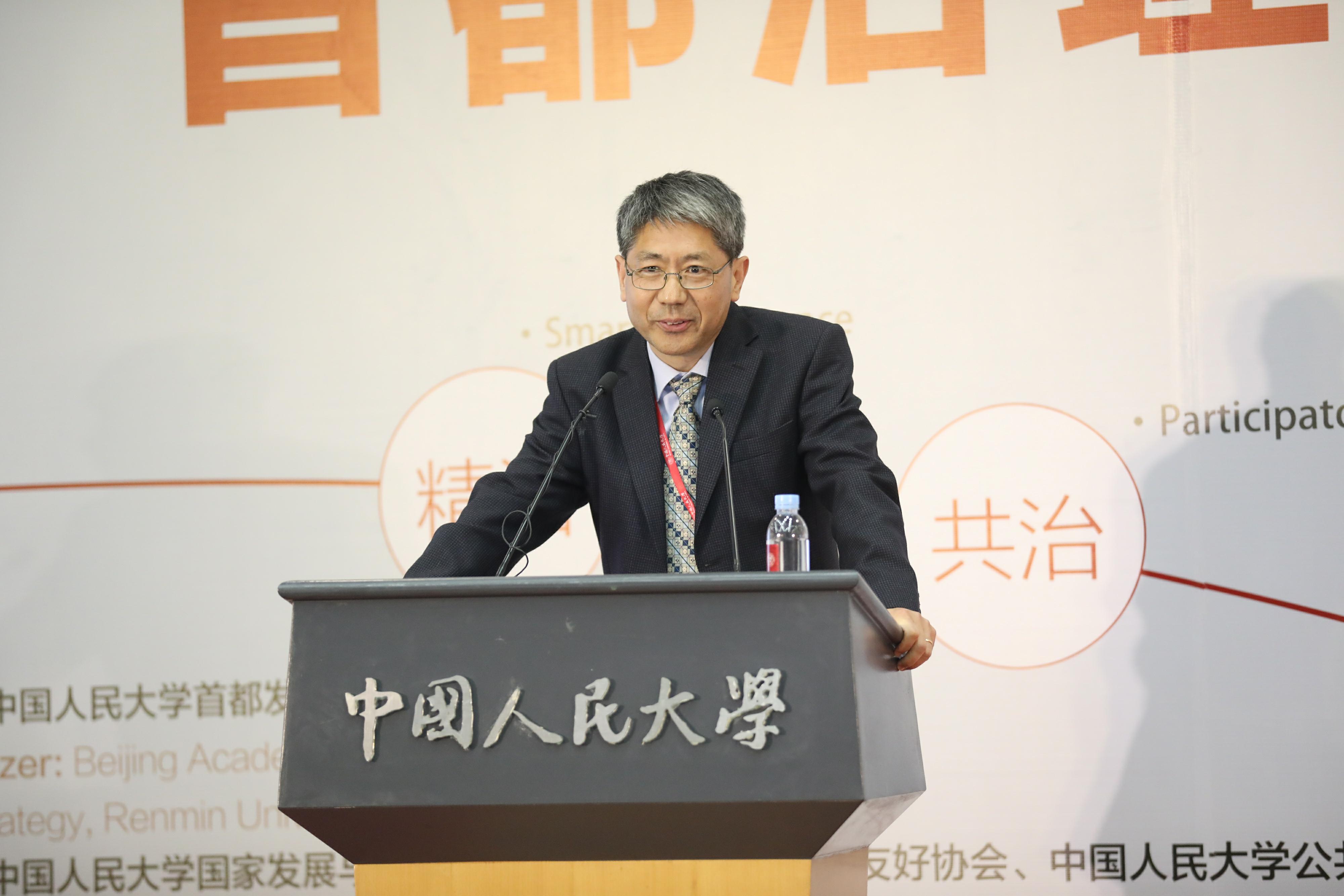
Dr. Qiu Baoxing, Consultant of the State Council and Former Deputy Minister of the Department of Housing and Urban-Rural Development, first published the report “Flexible Urban Design Principles Based on Complex Adaptation Theory”, explaining the principle of resilience urban design based on complex theory, thus solving uncertain risk factors that are difficult to deal with facing by complicated and super sized capital cities.
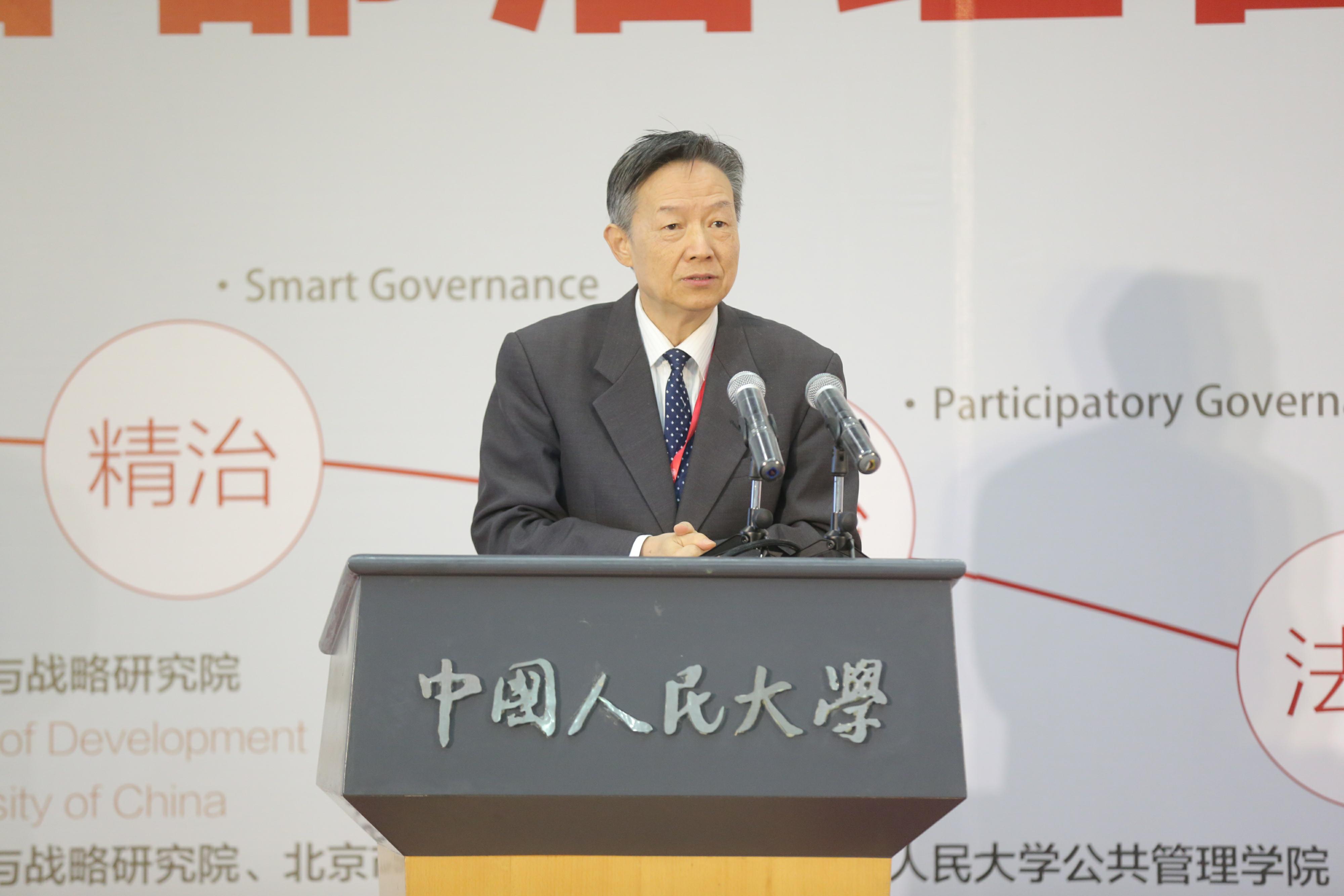
Dr. Anthony Williams, the former mayor of Washington DC, and Mr. Aoyama, the former deputy governor of Tokyo and Professor of Meiji University, based on their own management experience, worked on the reports of “Smart City and Regional Synergistic Development” and “Tokyo Urban Governance: Features and Topics” around the US capital and the Japanese capital, which briefly introduces the spatial planning and urban development process of Washington DC and Tokyo, respectively, highlights the need to introduce informational wisdom management technology and community public participation mechanism into the capital development and governance from political, economic, and cultural perspectives. In this way, we can truly realize the rational allocation and efficient use of resources.
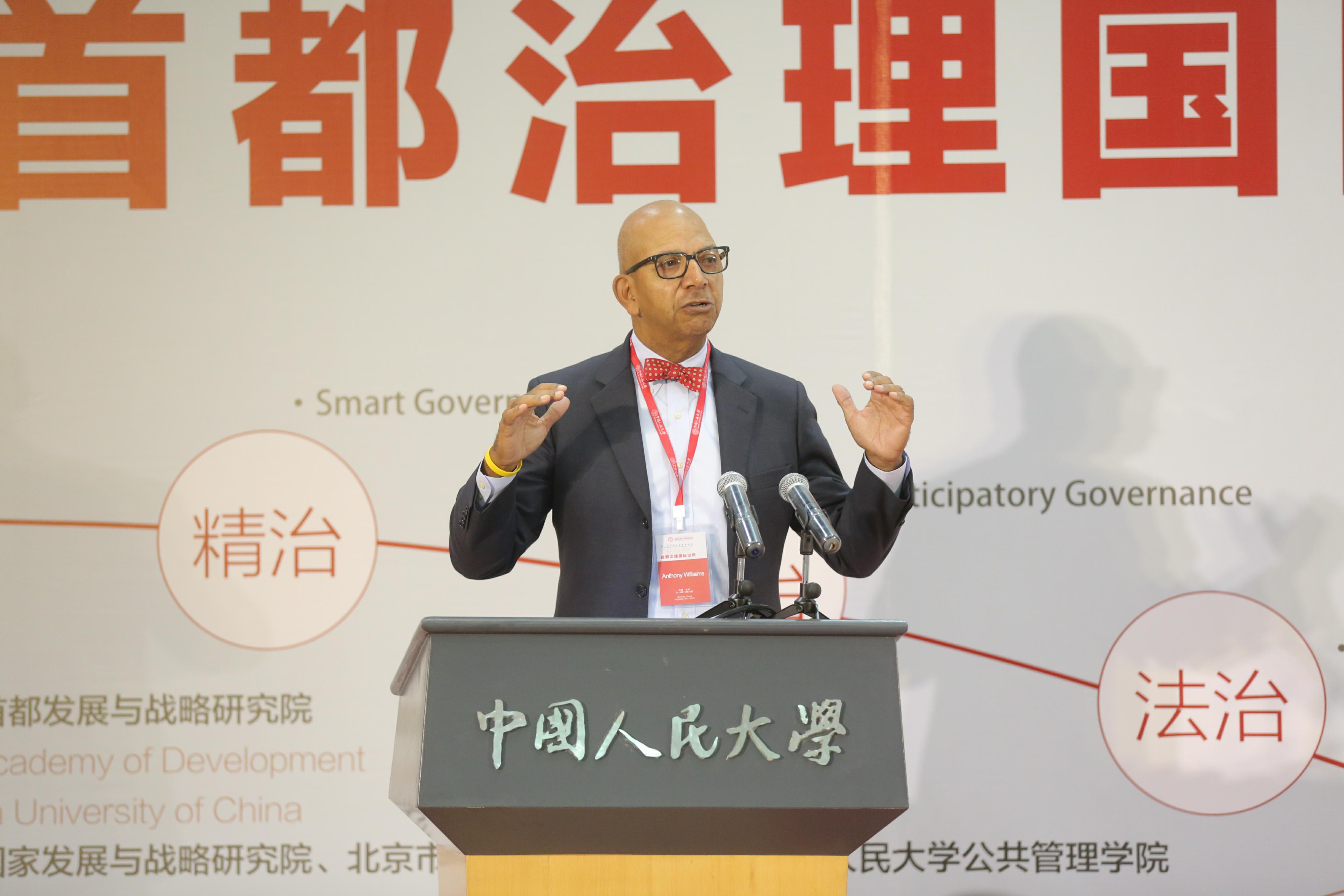
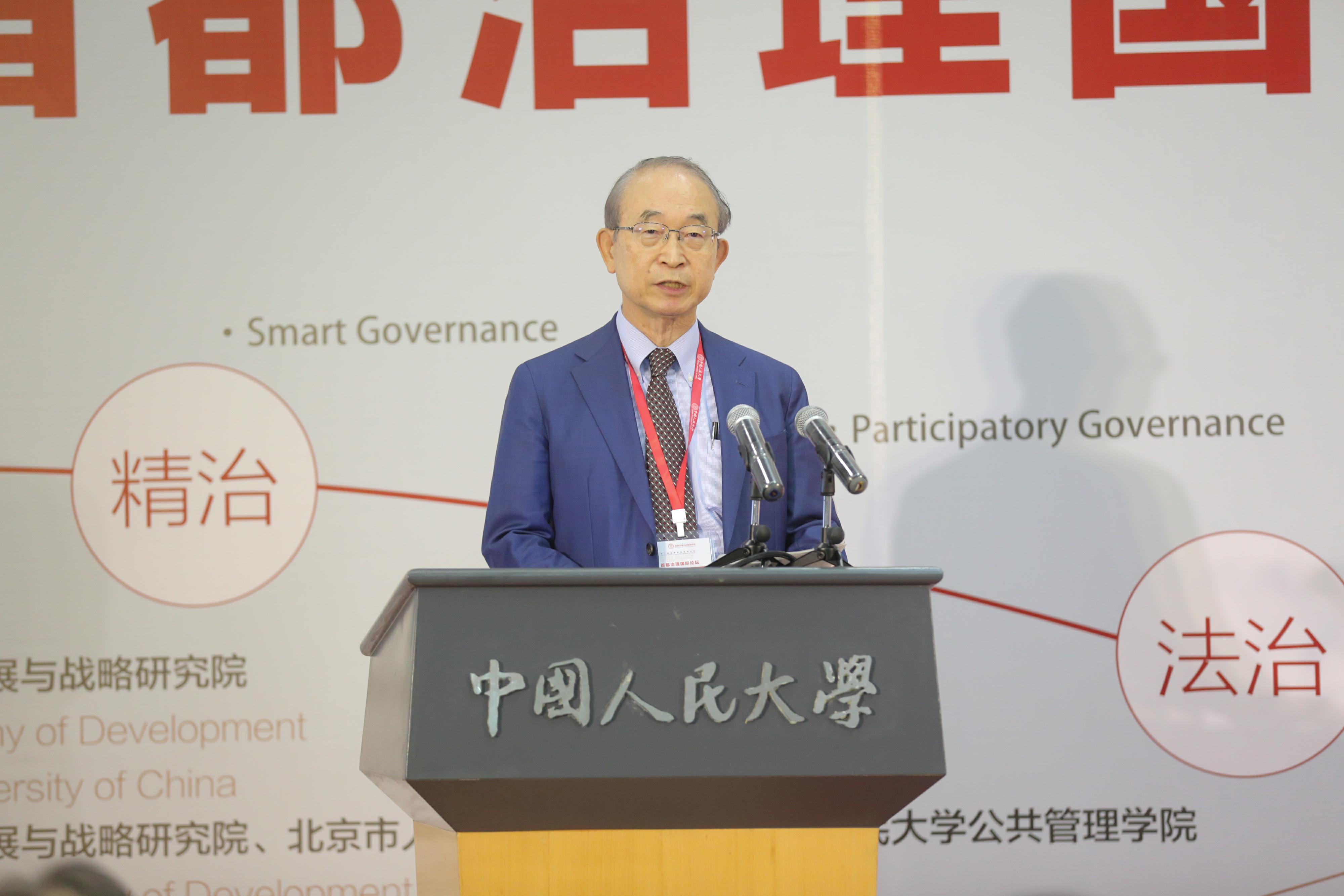
Yang Kaizhong, Vice President of the Capital University of Economics and Business and Standing Deputy Dean of the Capital Development Institute of Peking University, made a speech on the report of “Local Quality Drive: New Strategy for Capital Governance”. By comparing Beijing with Tokyo, he pointed out that although there are some differences between the population size and resource and environment allocation, local quality plays a crucial role in urban competitiveness construction and urban planning development.
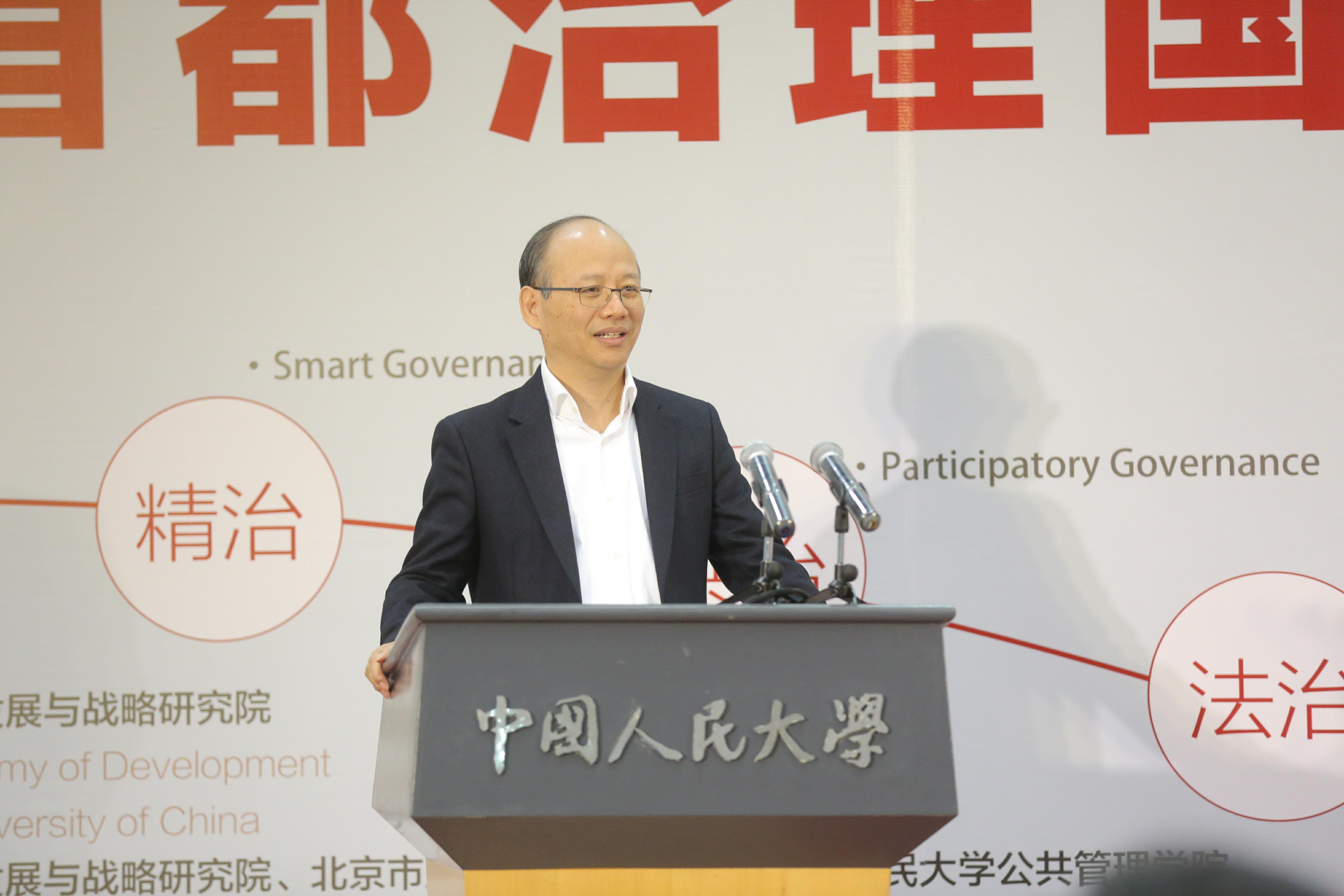
Christopher Hamlet, a member of the Royal Academy of Social Sciences and a professor at King's University in London, combed the development of global cities such as London, Paris, and New York, and made a report on “Changes in Social Classes in Global Cities”, pointing out that industrialization has elevated the level of society at the bottom of society, and then post-industrialization leads to the professional reorganization of social classes. In the same way, social restructuring and spatial reorganization of important cities in China such as Beijing and Shanghai, will have an important impact on urban governance.

Shabir Chema, former director of the Civil Affairs Division of the United Nations Development Programme and a researcher at the Kennedy School of Government Management at Harvard University, bBased on years of international practice and gave a report on “Governance in Capital Cities: Issues, Challenges and Demonstration”, pointing out that effective urban governance can enhance the capability of capital to promote the development of the country. Moreover, co-governance and rule of law is of especial importance to construct effective city governance system, other important factors includes goal orientation of inclusive development and the multi-center governance structure.
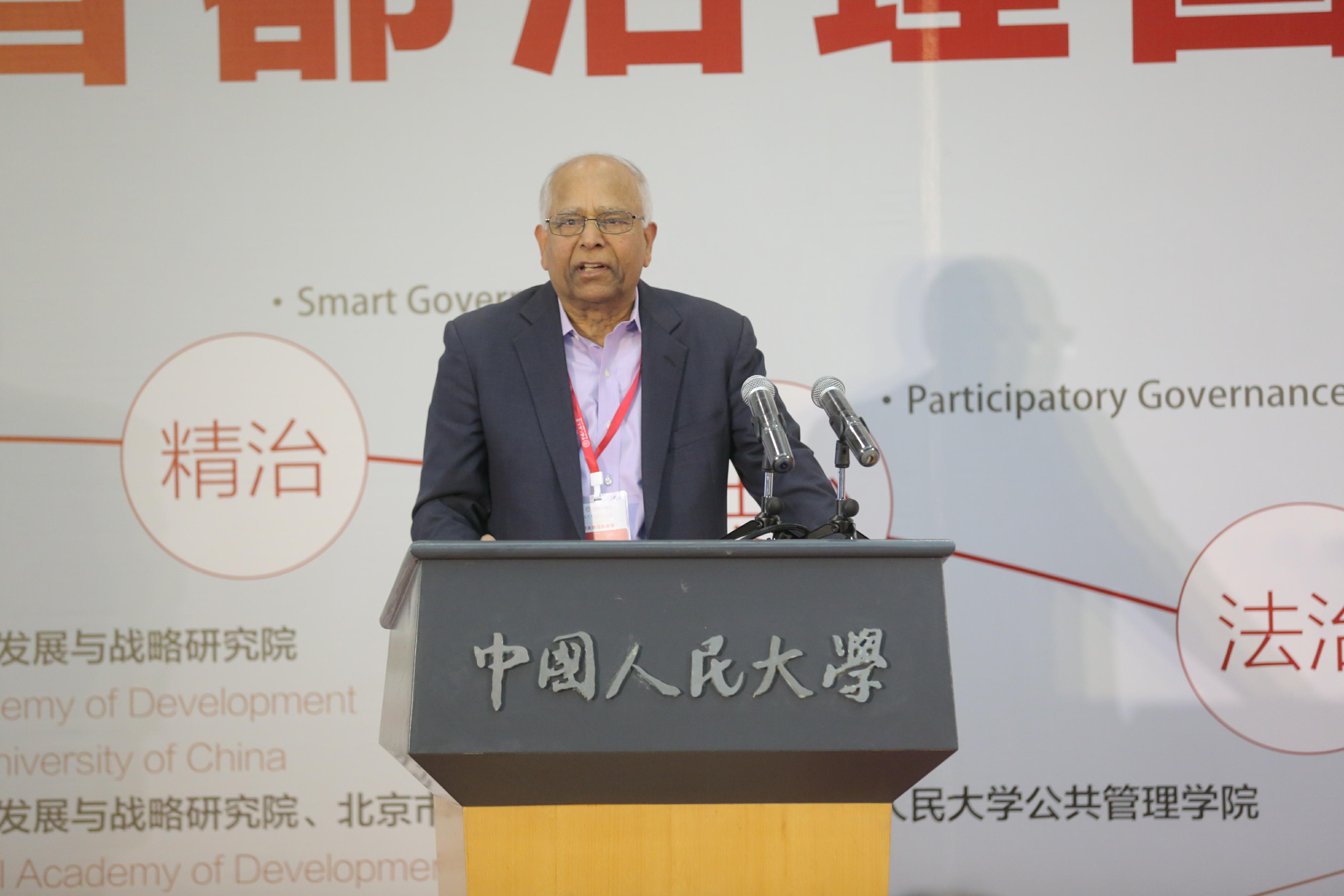
Sun Xinjun, Director of Beijing Municipal Management Committee made a report on “Back Streets in the Background of Urban Renaissance”, introduced the new trend of Beijing's renovation of the back streets and lanes. Starting from “Smart Governance, Participatory Governance and Rule of Law”, he proposed the new concept and pointed out that it is necessary to strengthen urban management legislation and law enforcement and encourage people to participate in governance.
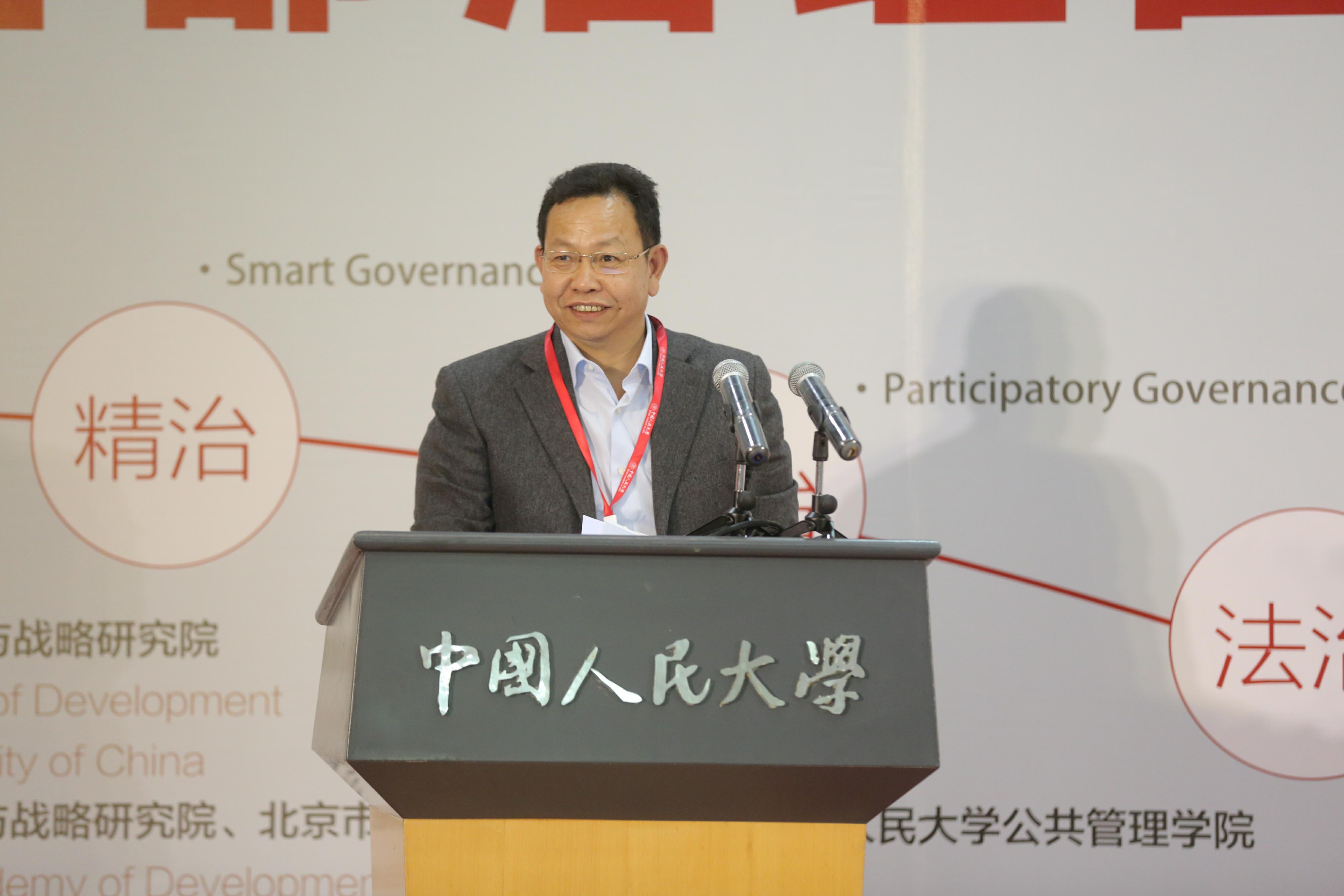
The first half of the second part of the forum was co-chaired by Mr. Wei Houkai, Director of the Institute of Rural Development of the Chinese Academy of Social Sciences and Professor Richard Legets of the University of California, San Francisco.
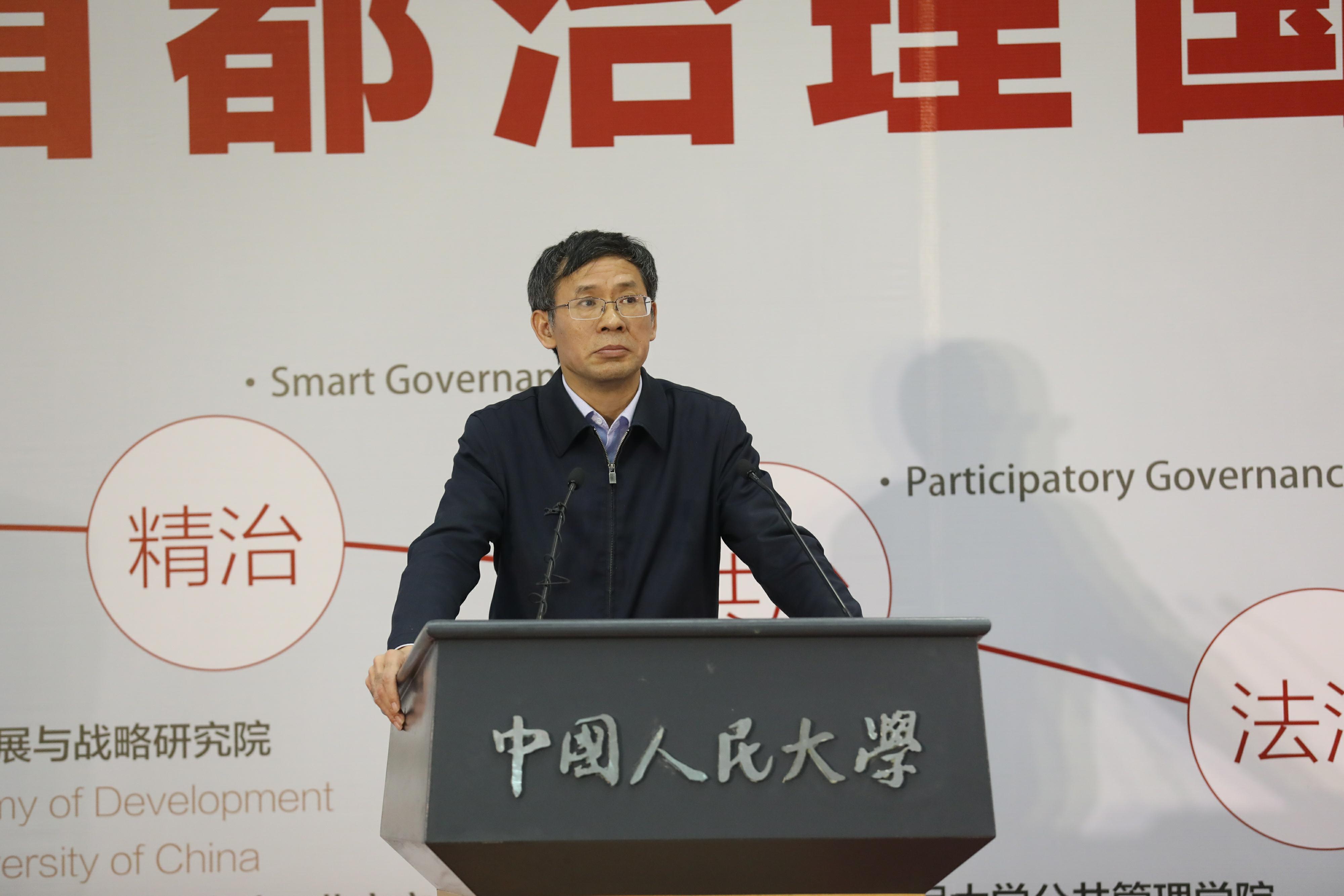
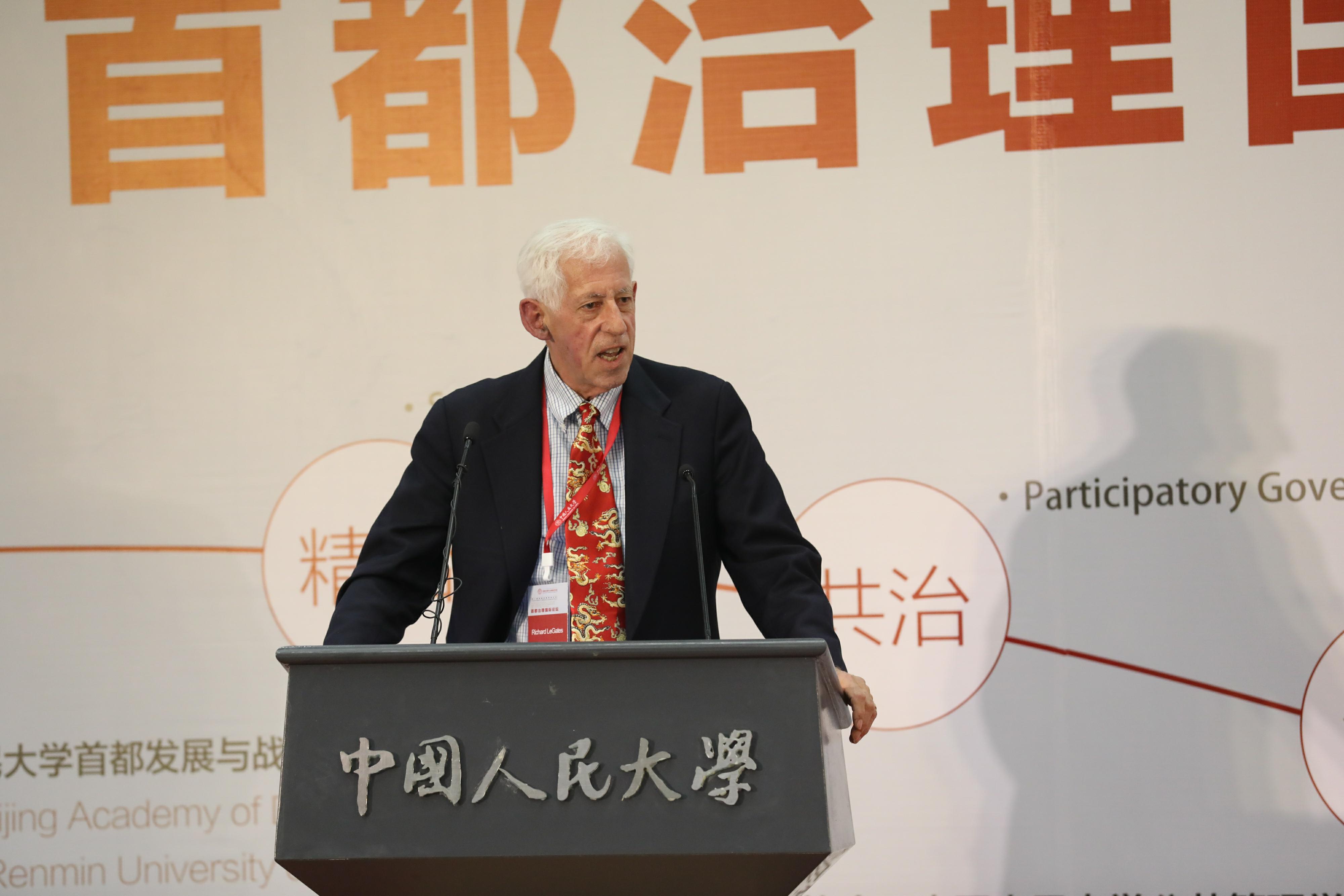
Professor Zhu Dajian, Director of the Institute of Sustainable Development and Management of Tongji University, changed his perspective and made a report on “Building a Global City Based on the Model of Beijing and Shanghai From 'Shanghai 2035'”. He discussed the construction of global cities in Beijing and Shanghai in 2035 from two dimension, three spaces, four levels and three fields of governance and believed that the governance of the capital city should achieve coordination and common development at different levels through the development model, urban space, and innovation and reconstruction of the governance system.
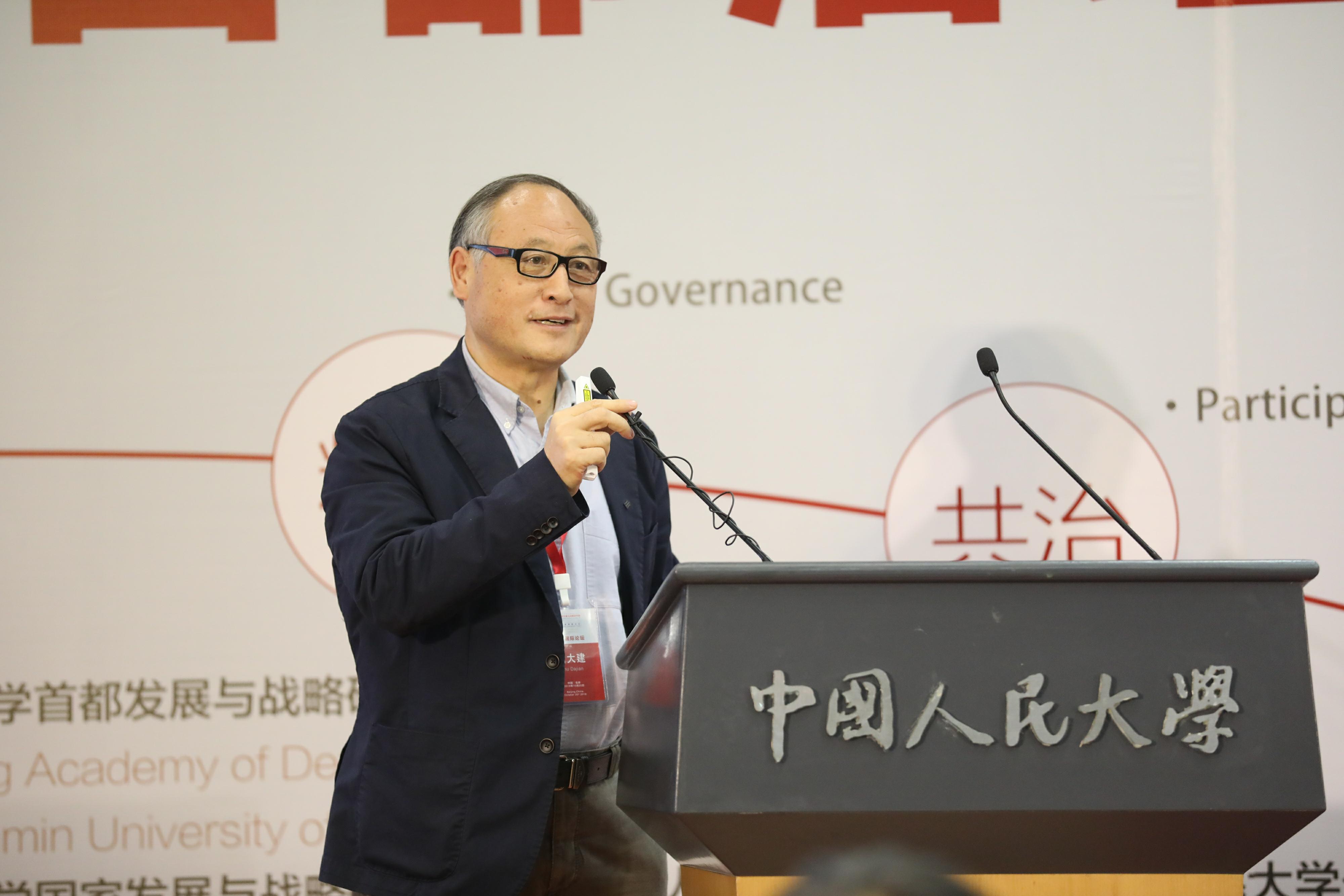
Dr. DePaulina Kundu, Director of the National Centre for Urban Affairs Research in India, and Dr. Cran Falhan, Research Fellow of the Pakistan City Center, introduced the urban governance of New Delhi and Islamabad respectively, made the “Capital City Governance: Delhi Case” report and “ Governance in Islamabad: Is smart governance the answer?” report. They made the comprehensive analysis on capital of India and Pakistan from the perspective of urban governance system and policy evolution and called for more coordinated governance and public participation.
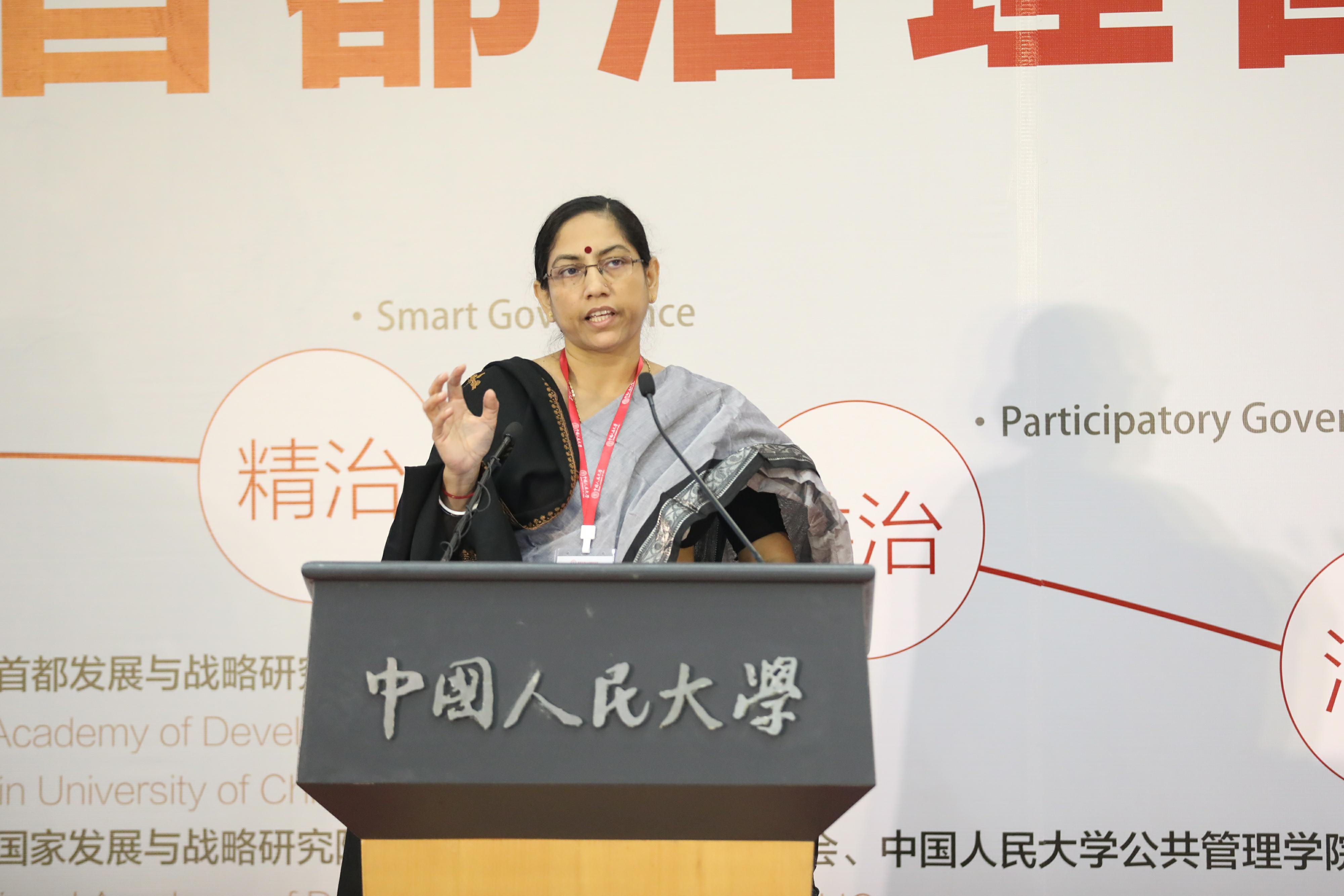
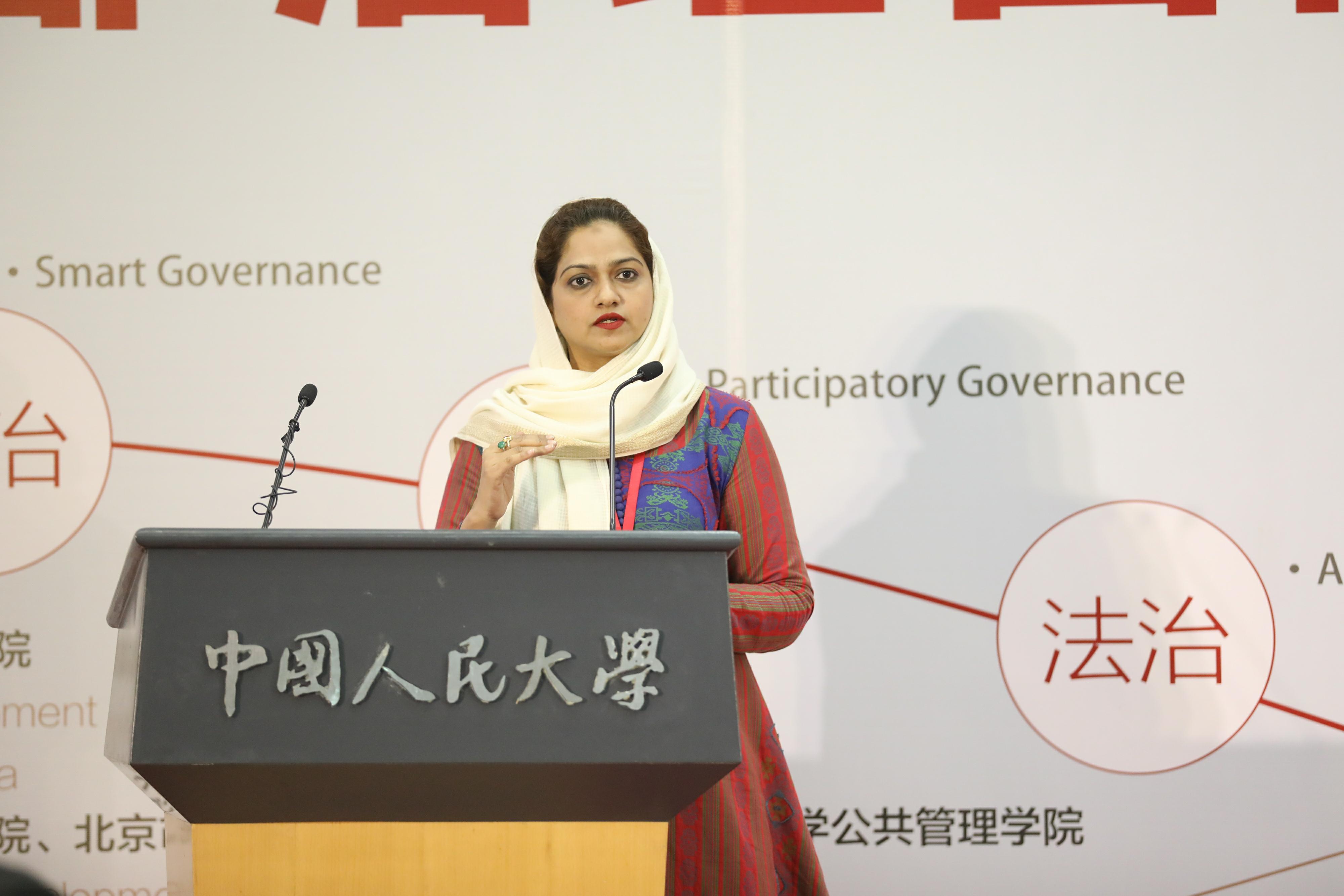
Wei Houkai, Director of the Institute of Rural Development of the Chinese Academy of Social Sciences, based on the law of economic development, made a report on the “Beijing City Sub-center Industry Development Strategy”, and conducted detailed data analysis on Tongzhou District’s industrial employment and residential commuting, pointing out that it is necessary to pay attention to keeping the order and peacefulness of the production, lives and environment, actively cultivate the two platforms of the headquarters economy and the building economy. In the mean time, we must pay attention to coordinating the construction, development and management of the surrounding areas.
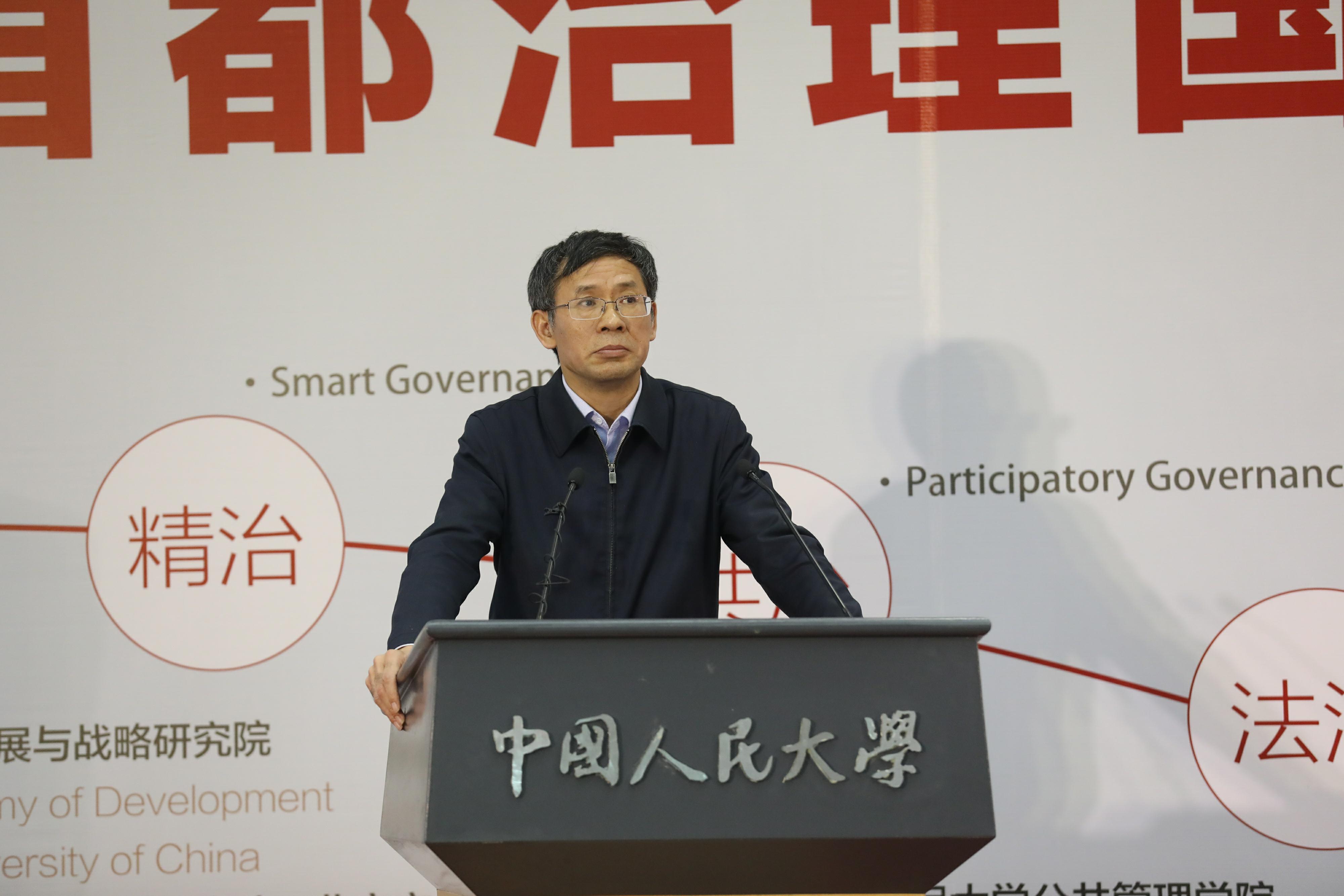
Prof. Edgar Ramirez, Director of the Public Administration Department of the National Center for Economic Research and Teaching of Mexico, conducted a cross-country comparison and made a report on “Comparative Study of Traffic Management in the Four Latin American Countries”. He used the theory of collective action of the organization to analyze the traffic management system of Santiago of Chile, Bogota of Colombia, Buenos Aires of Argentina, and Mexico City of Mexico, and pointed out that the integration of fragmented transportation systems in four cities experienced many challengs, and public and private sector involvement is critical.
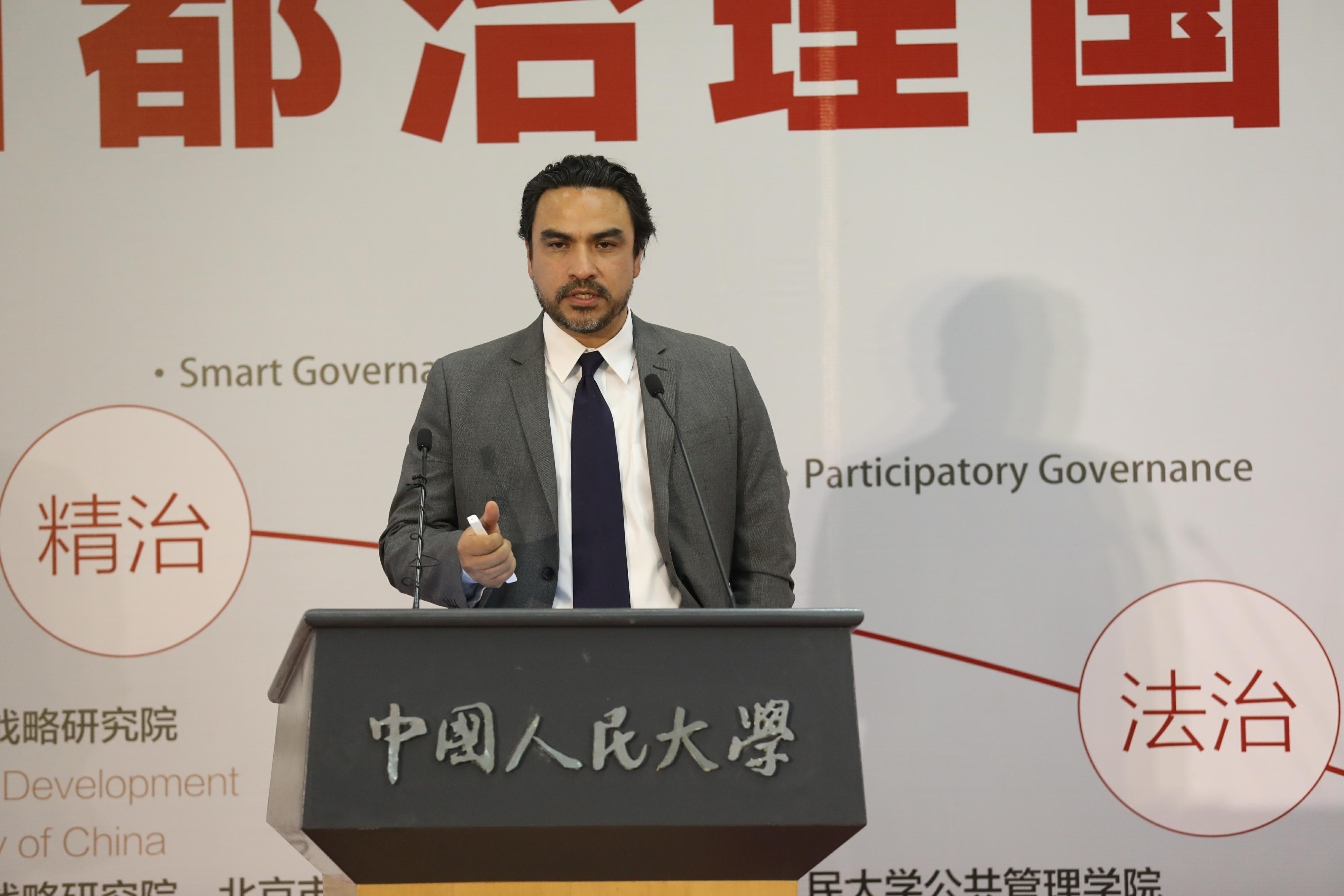
Professor Yang Hongshan from Renmin University of China started from the challenge of urban governance in Beijing and made a report on “Integrated Governance: A New Form of Urban Governance in Beijing”, pointing out that with the gradual reform of problem-orientation, Beijing has formed a new model of integrated governance, on the one hand, promoting the government's integration of social forces, on the other hand, promotes cross-sectoral integration, thereby improving the responsiveness of local departments and urban governance capabilities.
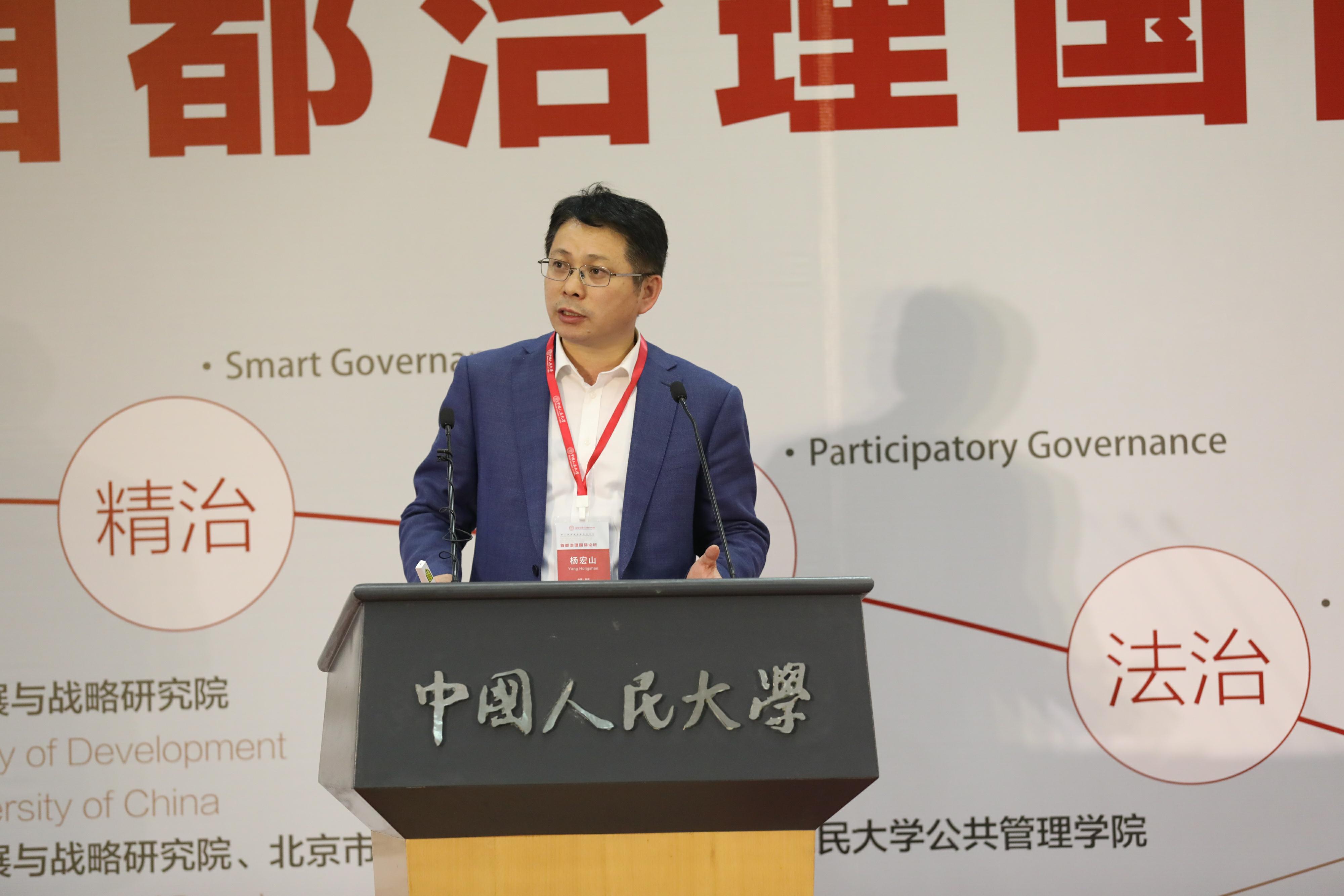
The second half of the second part of the forum was co-chaired by Professor Yang Kaifeng, Dean of the School of Public Administration of Renmin University of China, and Mr. Aoyama, former Deputy Governor of Tokyo Metropolitan University and Professor of Meiji University.
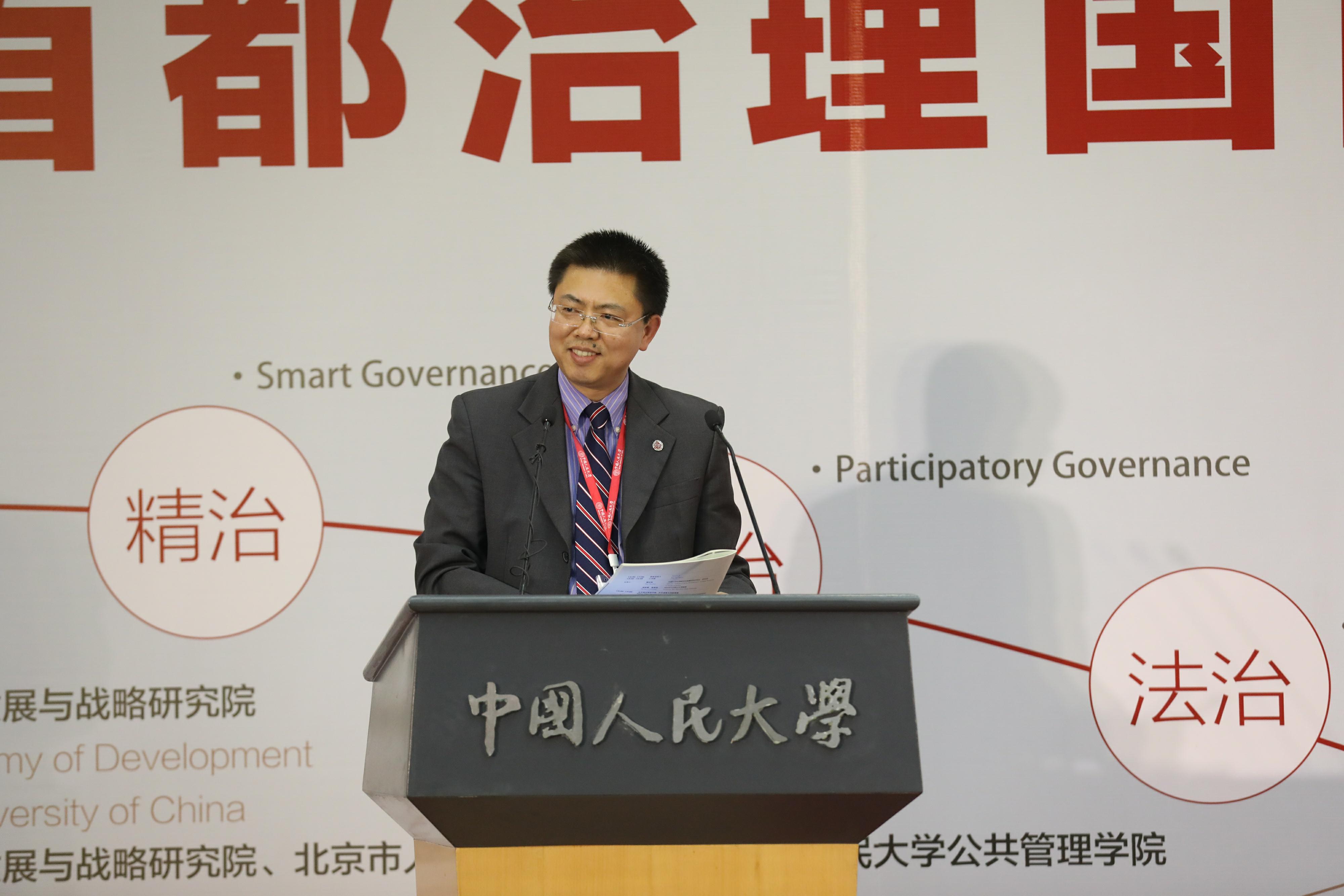

Professor Ye Yumin, Executive Dean of the CADS RUC, started from the commonality and characteristics of the capital's governance, focused on planning and governance, and made a report on “Beijing Urban Planning and Governance: Historical Logic and Innovation Exploration”. She introduced 6 versions of Beijing urban plans separately, analyzed its internal logic and historical continuity, and pointed out that the capital plan always reflects the national will and national strategy. She hopes to pay attention to the overall urban quality and accumulation of human capital after summing up the previous rounds of general rules experience and lessons to provide key elements for the high-quality development of the capital and push the capital planning and governance to a new height in the new era.
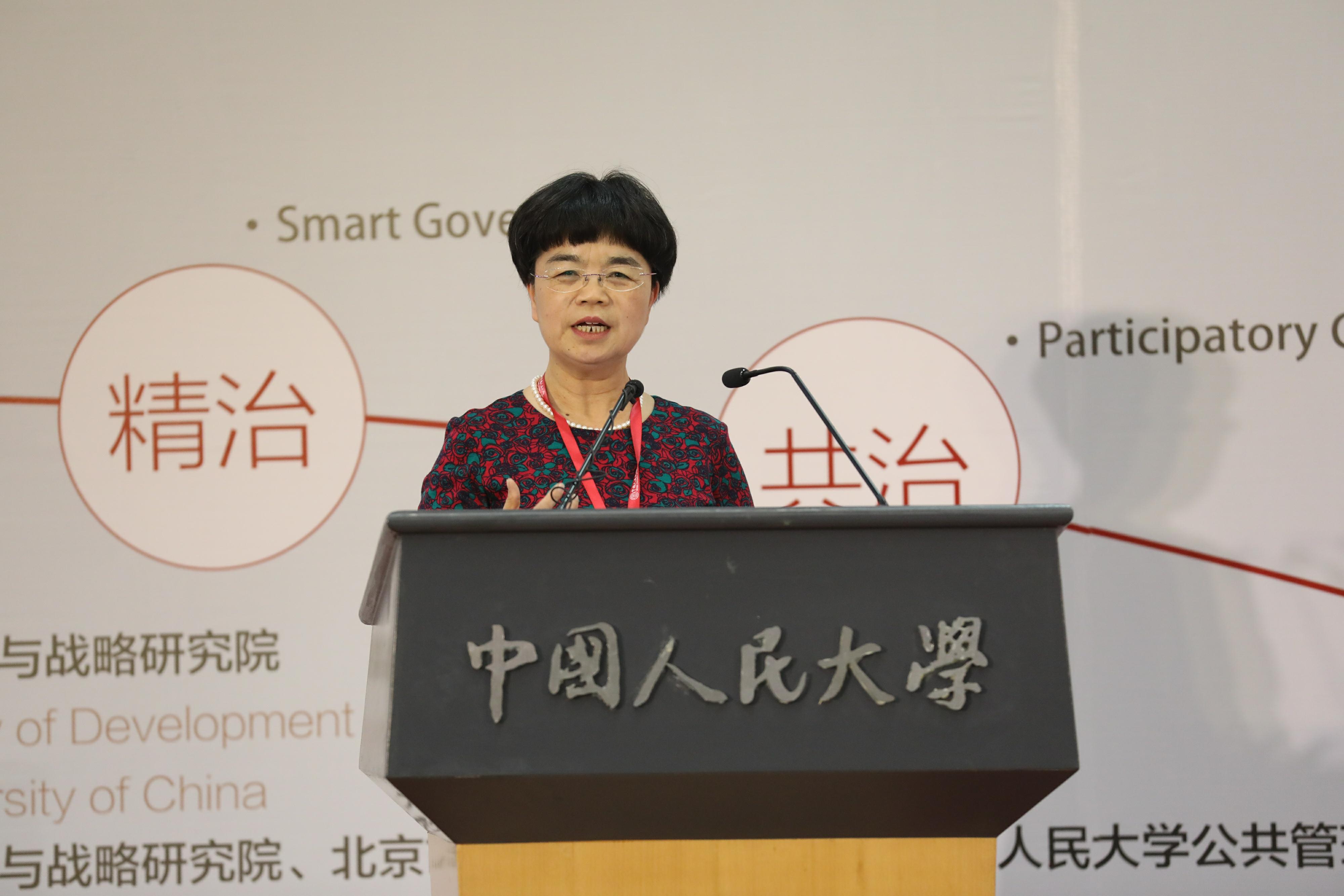
Richard Legets, a professor at the University of California, San Francisco, from the perspective of spatial planning and governance, gave a report on “Development and Planning of Washington DC”. He introduced the development and planning of Washington and major cities in Europe from the aspects of population, economy, and public transportation. He believed that there are many similarities and differences between Chinese and American cities, and they can learn from each other and avoid some problems that have appeared in history.
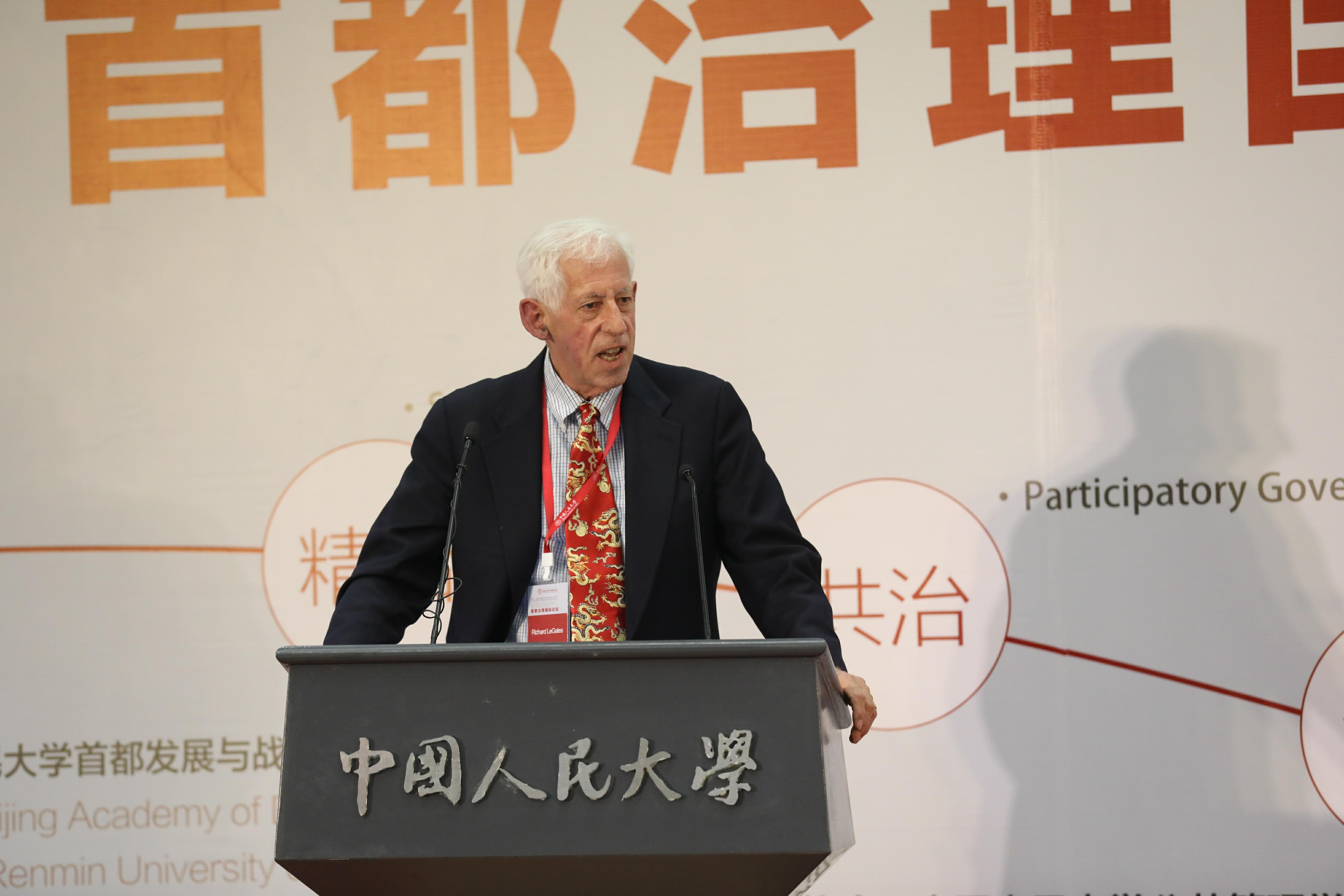
Professor Wu Weijia, Director of the Department of Urban Planning at the School of Architecture of Tsinghua University, made a report “Why Beijing Needs Beijing-Tianjin-Hebei Collaboration” in a larger regional perspective. He analyzed the necessity of coordinated development of Beijing-Tianjin-Hebei from the aspects of population size, economic development and land use intensity, which showed that because of limited space resources, it is necessary to integrate effective resources and utilize them in a rational and efficient way to drive the common development of regional economy.
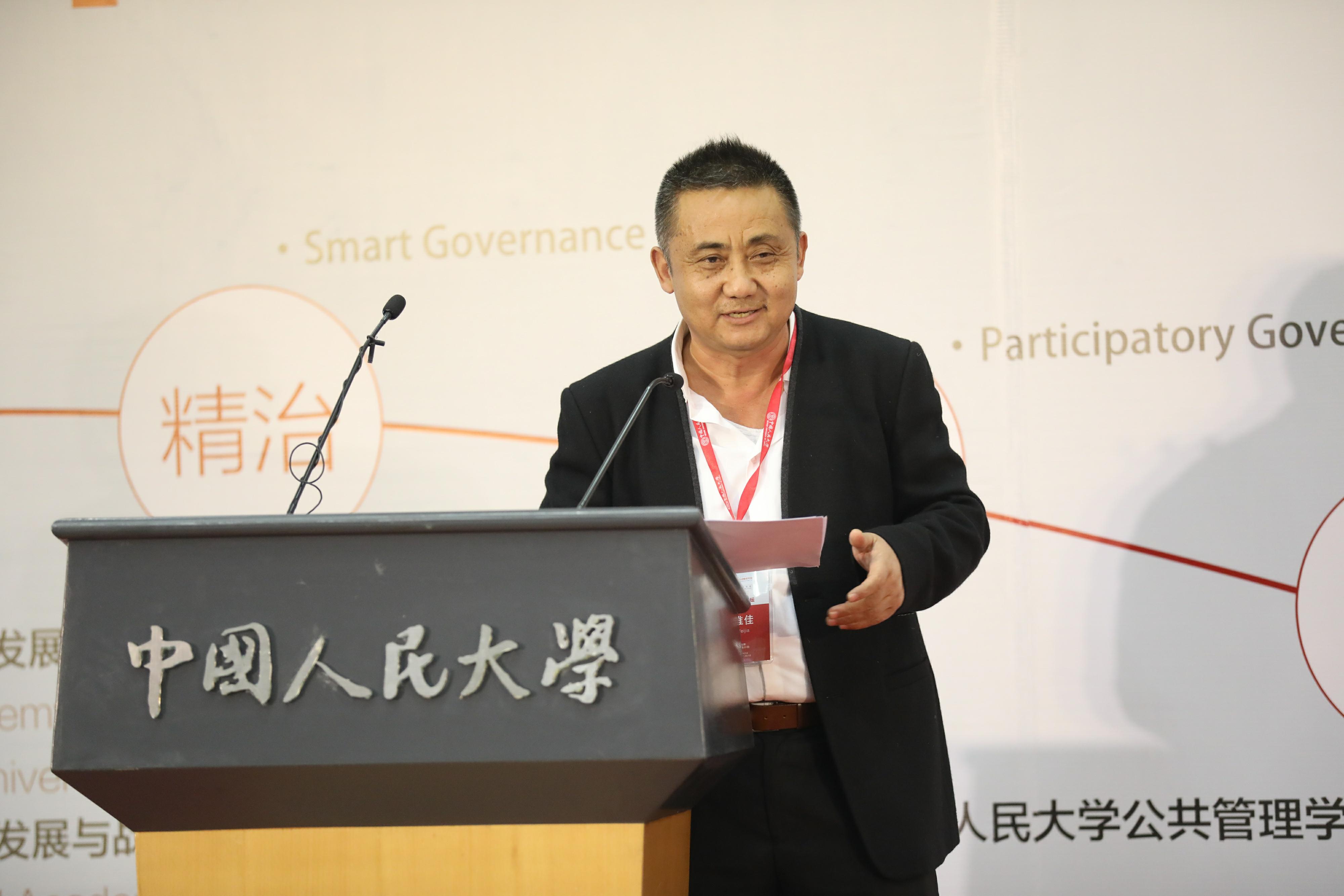
Professor Zhang Jie, Deputy Dean of the CADS, analyzed the characteristics of the capital city and made a report on “Capital Development Discussion: Economic Center and Political Center”. He believed that to develop a high-tech industry system, Beijing should start with lowering housing prices and creating a new housing mechanism, improve the business environment. In this way can we develop a high-tech industrial system and enhance our global competitive advantage.
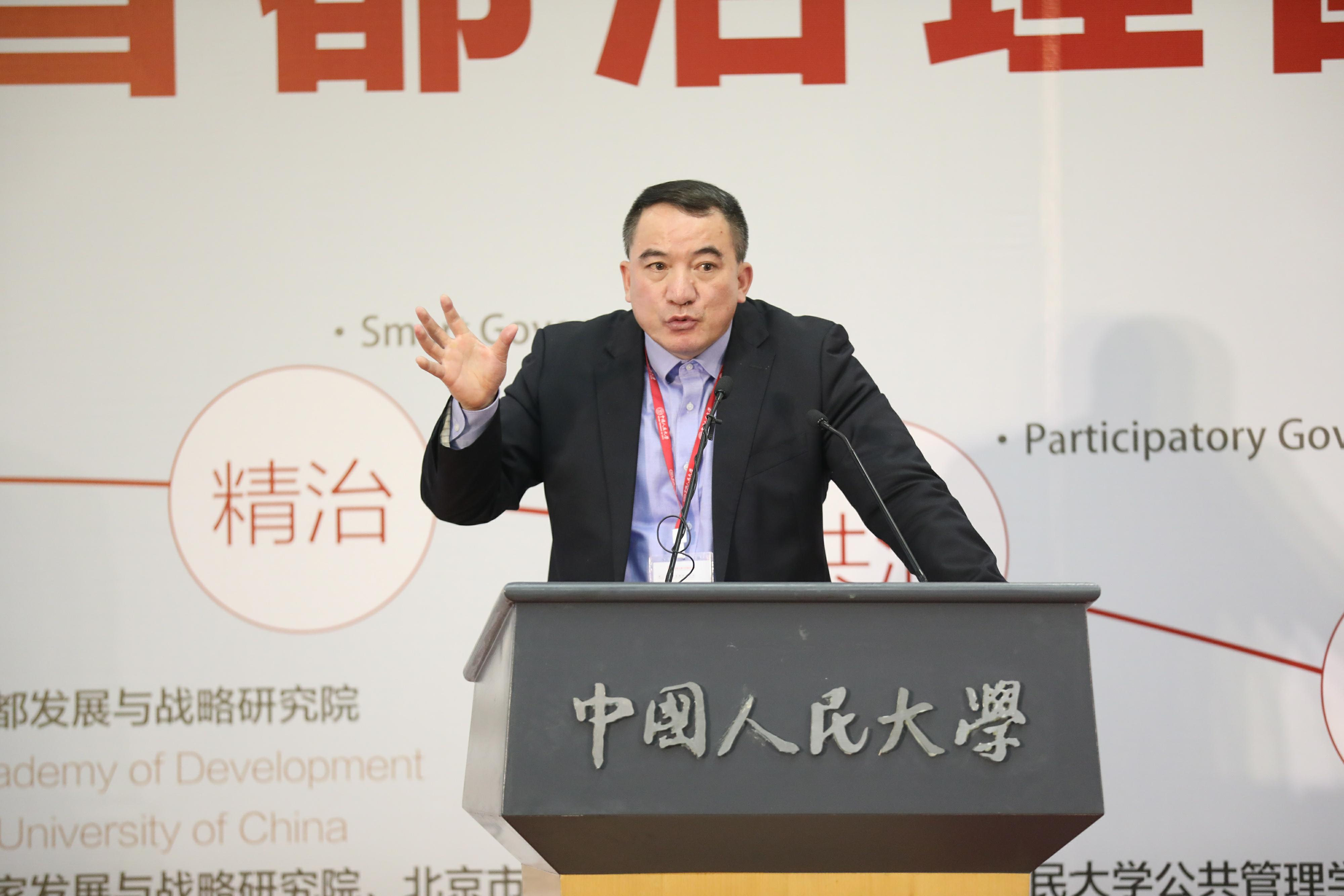
Professor Han Sunsheng of the University of Melbourne took Canberra, the capital of Australia, as an example and made a report on “Canberra’s Plan Implementation: Leading in the Capital Construction of the New Garden City”. He introduced the history of the Canberra and its capital construction process and pointed out that in the face of the ever-changing environment, its strategic planning is also constantly adjusted and updated in the process of preparation to implementation, and actually applied to the planning implementation process. He believes that the implementation of strategic planning is an important area of future urban governance.
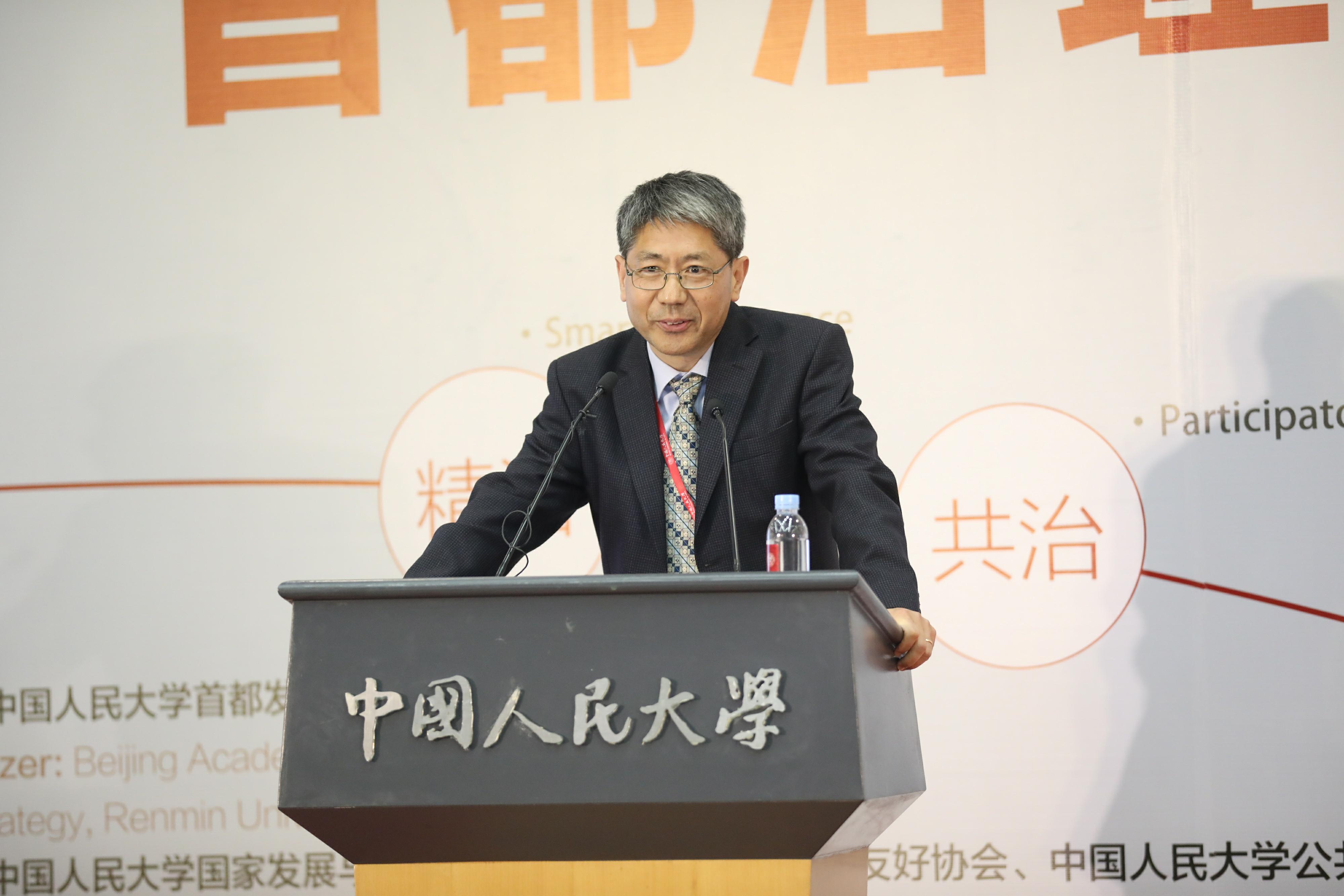
Experts from nine countries discussed the governance research of 11 national capitals. Seven domestic experts discussed the theory and practice of Beijing governance from different fields. Experts and guests discussed ways of governing from different perspectives. Leaders from the Beijing Municipal Party Committee Propaganda Department and the Beijing Municipal Management Committee, teachers and students from Chinese Academy of Social Sciences, Peking University, Tsinghua University, Tongji University, University of International Business and Economics, Capital University of Economics and Business, and other colleges and media reporters more than 300 people Participated in this forum.